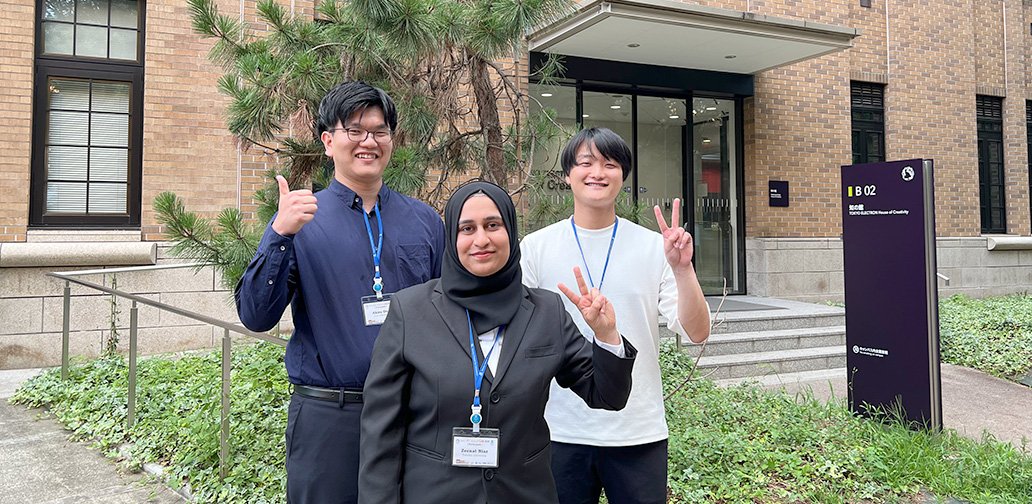Twenty-three early-career researchers and entrepreneurs from nine countries participated in this year's Falling Walls Lab Sendai, held at the TOKYO ELECTRON House of Creativity on Katahira Campus on 5 August.
This marked the 12th time that Tohoku University has hosted the event, which forms part of the wider Falling Walls Conference held annually in Berlin.
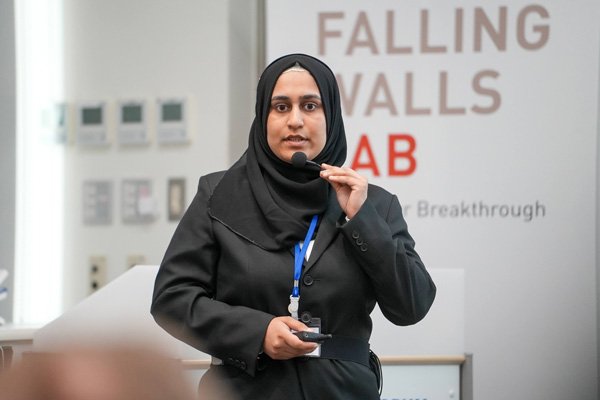
Zeenat Niaz from Tohoku University's Graduate School of Agricultural Science claimed first place with her presentation "Breaking the Wall of Chemical Pesticides: Eco-friendly Alternatives to Bacterial Wilt." She addressed the overuse of chemical pesticides by proposing phages as sustainable biocontrol agents.
"The overuse of chemical pesticides pollutes water and air, creates resistant microbes, harms soil health, disrupts microbiomes and endangers biodiversity," she explained. "Phages - viruses that specifically target bacteria - offer a cost-effective, self-amplifying and environmentally friendly alternative to traditional pesticides, which could help boost yields and enhance future food security."
While excited about visiting Berlin for the first time, she said she is "even more eager to present my work and potentially develop it into a practical solution."
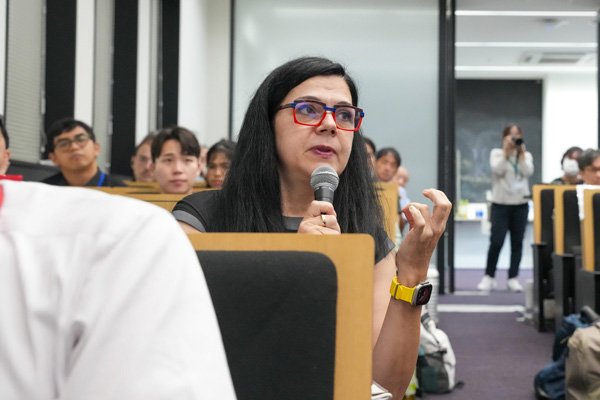
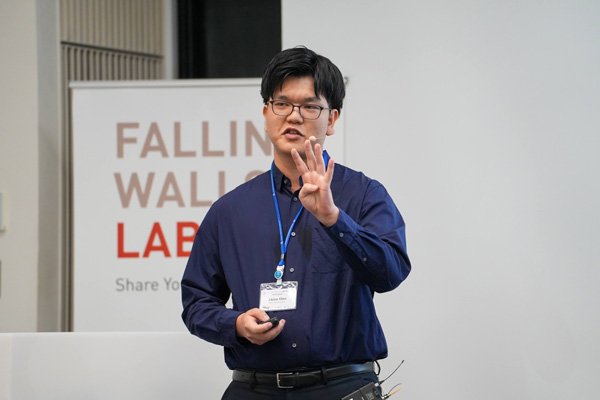
Akira Ono from Keio University's Graduate School of Science and Technology secured second place with "Breaking the Wall of Regenerative Therapy," addressing the global need for artificial organs and organ models.
"The key challenge is constructing three-dimensional tissue structures," he explained. "My project combines laser processing of scaffold materials with cell culture techniques to guide blood vessel formation, aiming to develop methods for organ-specific capillary networks."
Ono, who travelled from Tokyo for the event, expressed surprise at his second-place achievement. "I didn't expect this honour. The experience was very inspiring, with many interesting presentations and ideas. I learnt a lot."
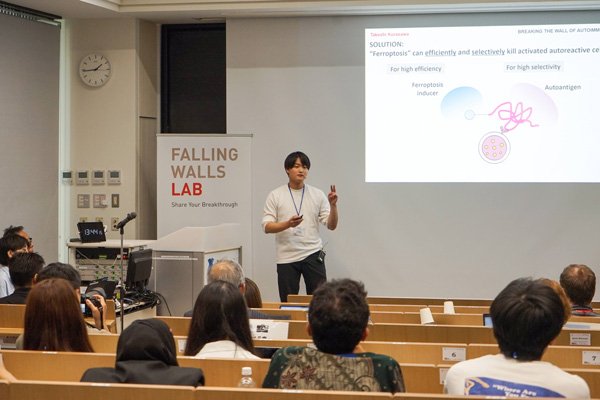
Third place went to Takeshi Kurasawa from Tohoku University's Graduate School of Medicine for "Breaking the Wall of Autoimmune Disease." In his presentation, he explained that "autoimmune diseases occur when self-reactive immune cells attack our bodies. So I've developed a method to induce cell death specifically in these self-reactive cells."
Kurasawa reflected that the competition taught him "how important it is to explain research simply to a wide audience."
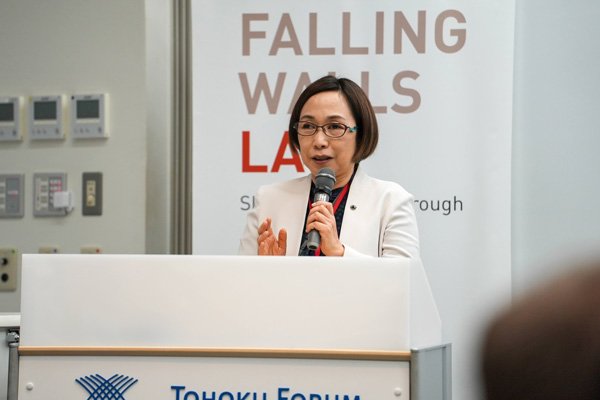
Jury members praised the presentations while encouraging all participants to continue refining their ability to articulate their research clearly and concisely.
Falling Walls Lab, an international competition established in Berlin in 2011, promotes innovative solutions to contemporary problems. Contestants deliver three-minute pitches and answer questions from the jury, being evaluated on the "breakthrough factor," social relevance and presentation quality of their research.
As a regional qualifying event, Falling Walls Lab Sendai attracts contestants across all disciplines annually, with the winner going to Berlin in November to compete in the final.
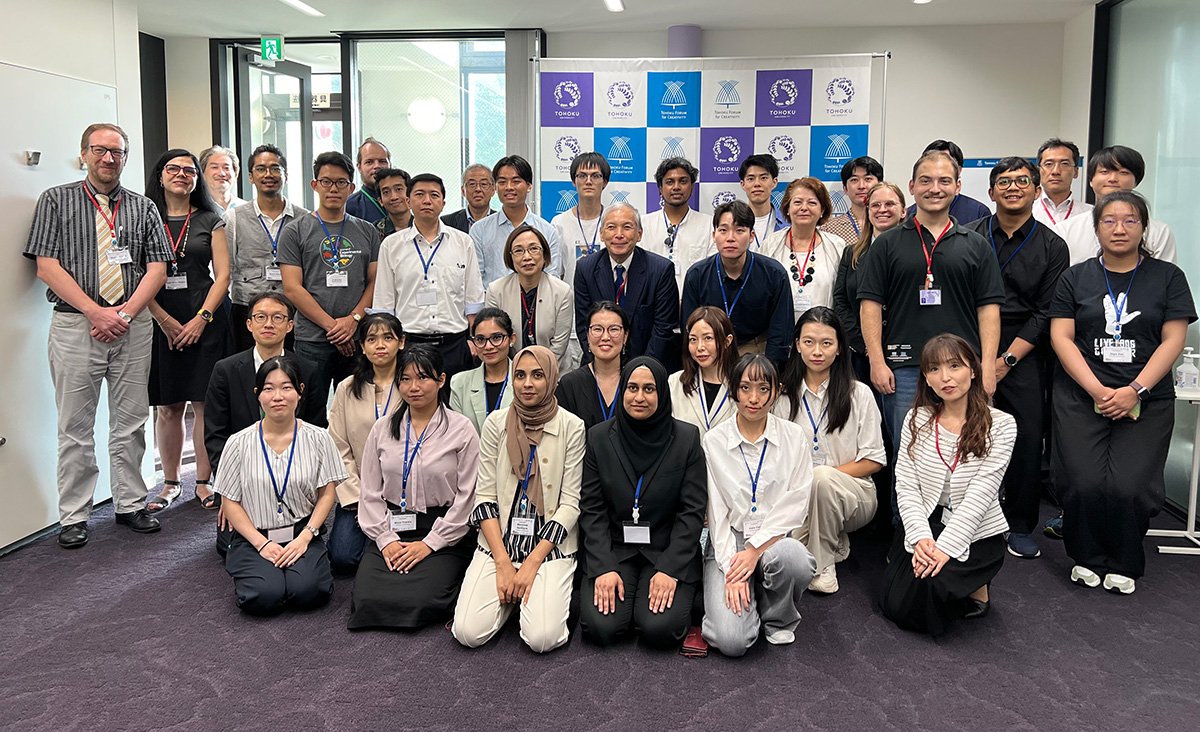
Contact:
Falling Walls Lab Sendai AdministrationTohoku University
Tel: +81 22 217-6091
Email: fwls
 grp.tohoku.ac.jp
grp.tohoku.ac.jp
